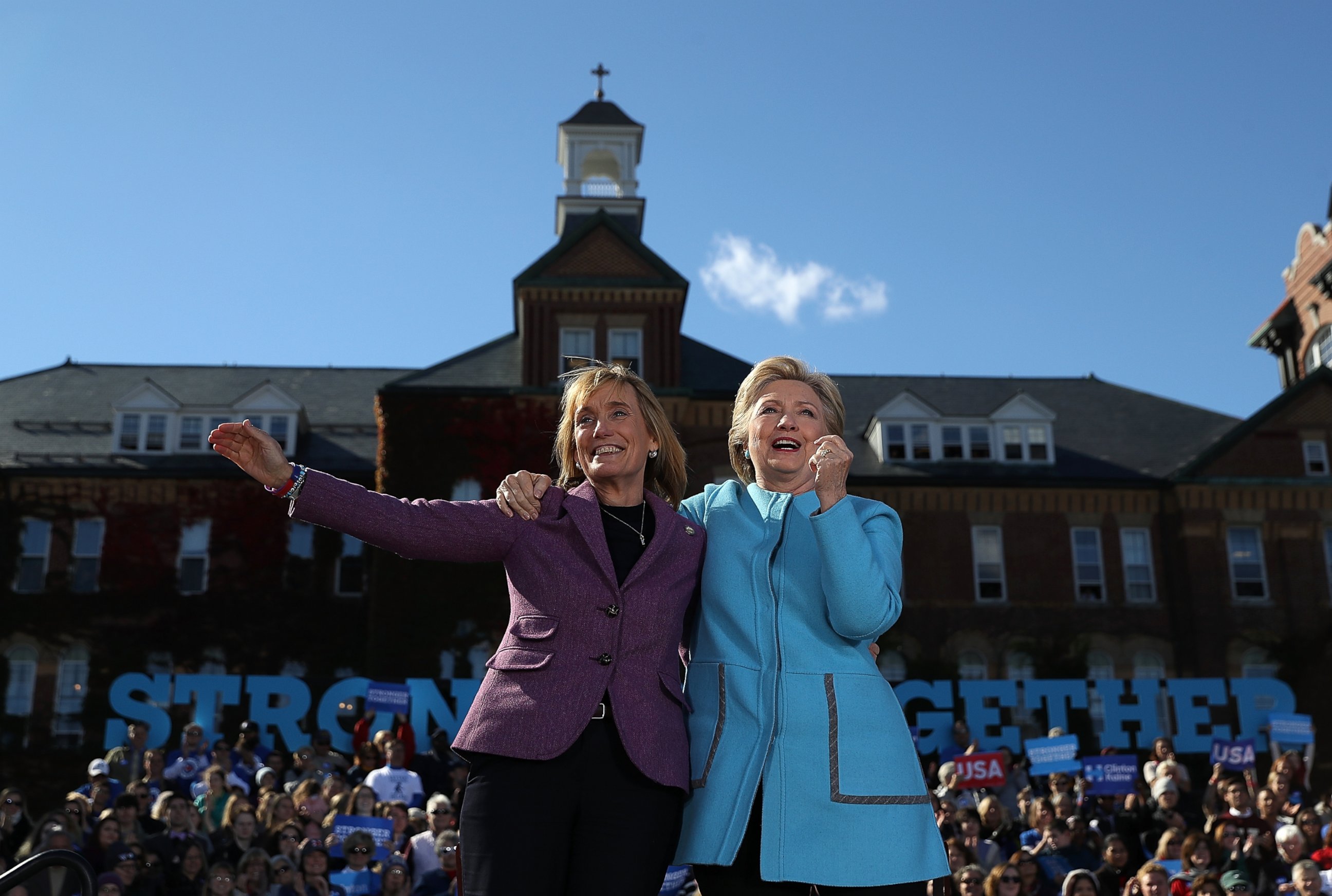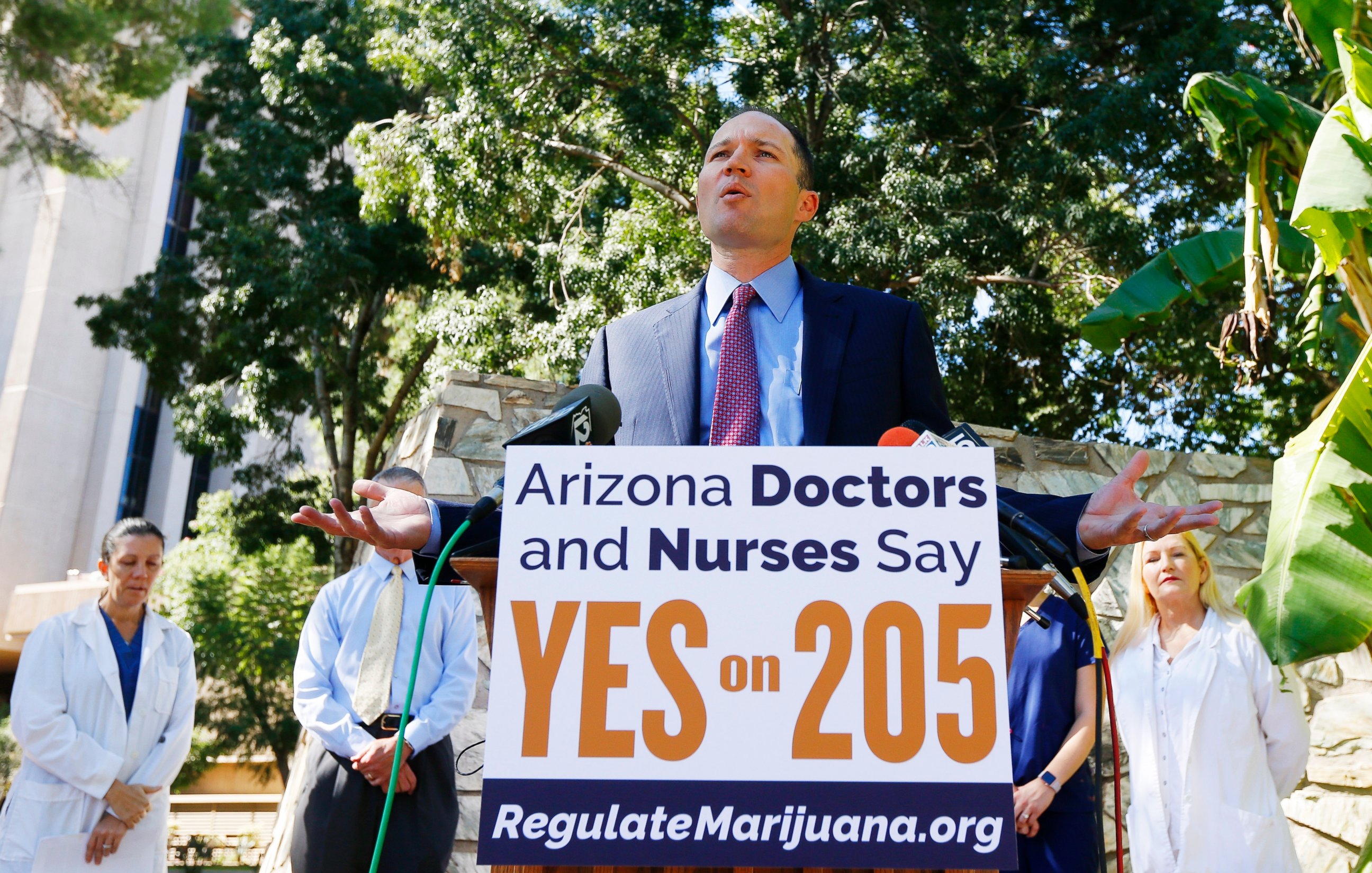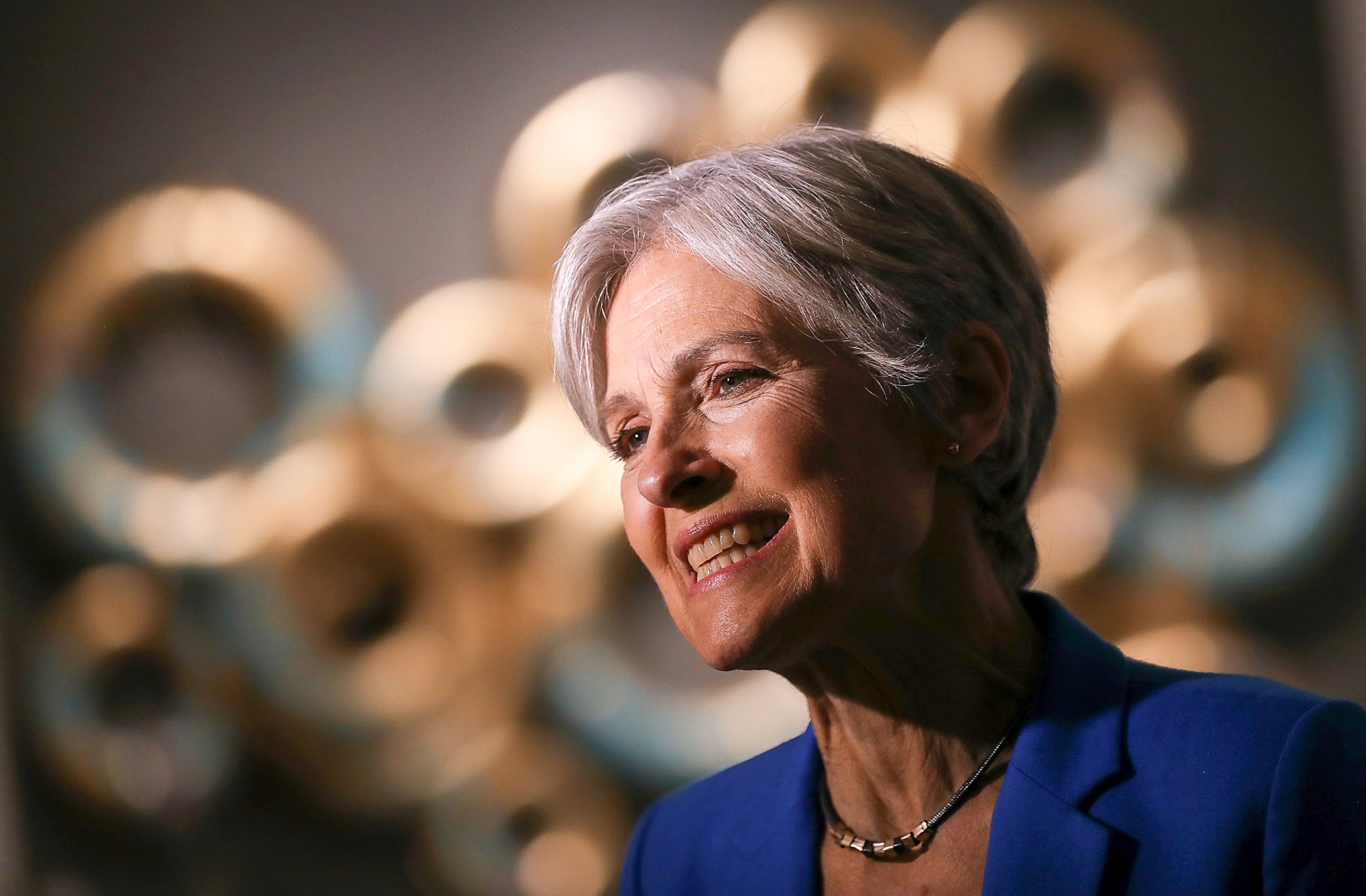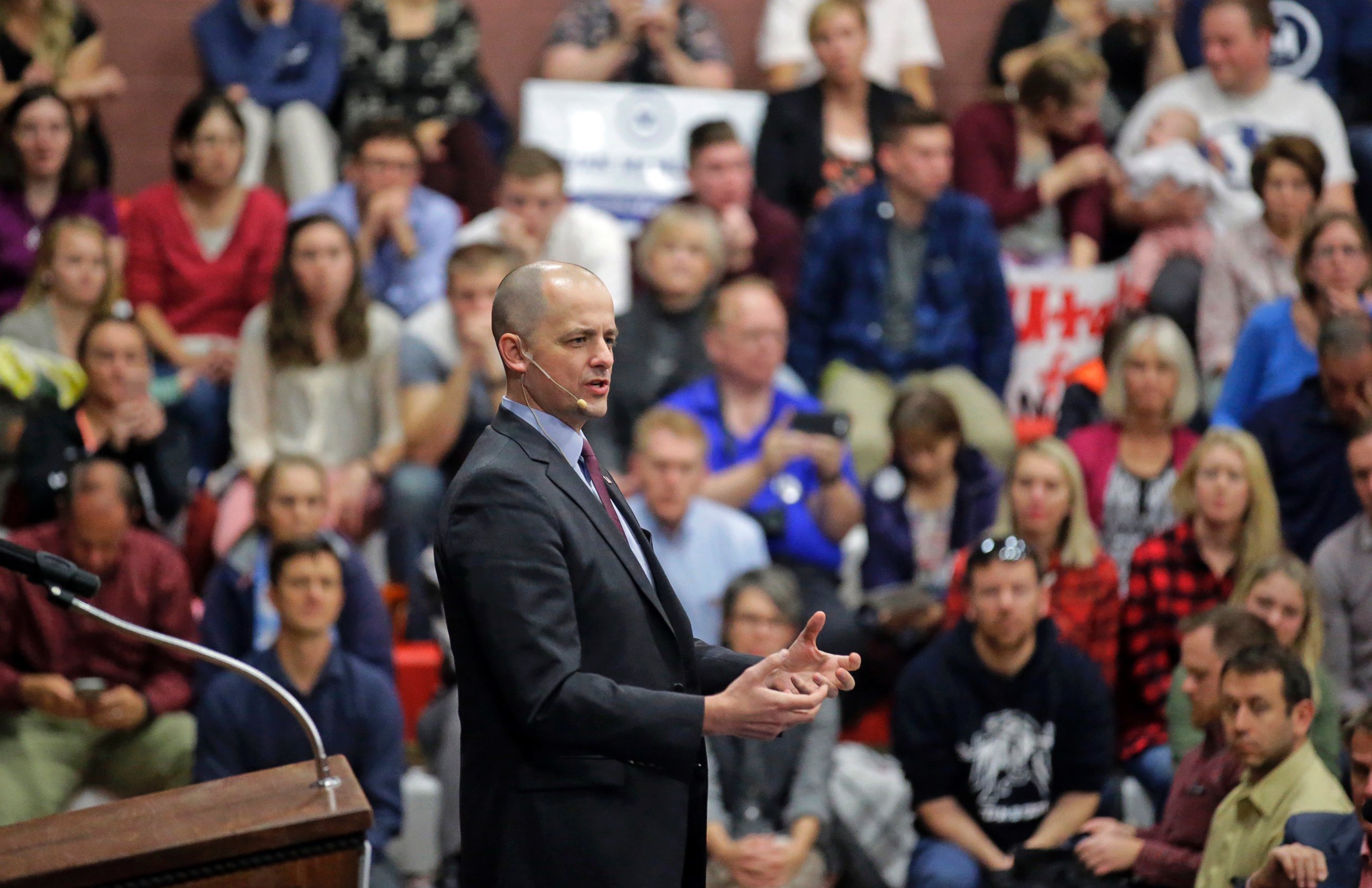Everything You Need to Know for the Presidential Election
A primer on the final day.
— -- Official and unofficial campaigning for this election arguably started a little less than two years ago, but it is finally coming to an end today.
As the countdown clock reaches the final hours, there's still time left to get caught up on some of the biggest issues involved.
Here is a beginners guide to some of the most basic elements of the election.
What's At Stake in this Election
The battle for the presidency has been fierce for months, and started long before Hillary Clinton and Donald Trump faced off against one another in the general election campaign.
Clinton faced a primary against the formidable Bernie Sanders who, in a surprise, captured nearly enough delegates to win the nomination and remained in the race much longer than some expected.
Trump emerged from a crowded field of Republican hopefuls and a vicious primary contest in which insults were regularly hurled around and traditional candidates struggled to gain their footing with the unconventional real estate mogul.
When it became clear that Trump and Clinton were set to become their parties' respective nominees, their attention turned towards one another and became particularly nasty, with accusations of racism and sexism becoming frequent themes.
Besides the Presidency, Here’s What Else Is Up for Grabs

While the race for the White House has gained the most attention, there are 34 Senate seats that need to be filled, which could stand to change the majority.
Right now, the Republicans hold the Senate majority, but they are playing defense on 24 of the seats that are up for election or re-election, compared to the 10 seats that the Democrats are trying to hold on to.
If Clinton wins the White House and brings Sen. Tim Kaine along with her, Democrats need to net only four seats to retake control of that chamber. Right now they have several paths to that number.
There's been a lot of discussion about what impact the top of the ticket will have on the down-ballot races, and most of this stems from the fact that many people vote straight down a ticket. That means that they select their candidates largely based on whether or not they are voting for the Republican or Democratic presidential candidate.
In addition to the Senate races, all 435 Congressional seats are up for election or re-election as their terms only last two years. There is less speculation about the House flipping control from the current Republican hold to Democratic than there is about the Senate changing power.
There are also 12 gubernatorial spots that are up for election, and countless state-level positions.
How is Early Voting Going
The numbers are changing daily, but as of the afternoon of Nov. 2, more than 31 million people have voted in 46 states including absentee ballots, according to an analysis of AP data by ABC News. This represents 67.4 percent of the 2012 early vote.
In 37 states and the District of Columbia, there is some form of early voting system in place that is different from absentee ballots, which are available in every state.
Over 37.5 million ballots have been requested, per AP data.
Voters in Idaho, Minnesota, Vermont and Wyoming were the earliest to start cast their ballots, as their early voting laws allowed them to start on Sept. 23.
Though the results of the early ballots will not be officially known until votes are tallied on Election Day, many states reveal the party registrations of those individuals who vote early, so that can give some non-exact indication of how they may have voted.
Key Ballot Initiatives

In seven states, voters will be asked to vote on specific policy initiatives, and there's some overlap in what they're asking.
Five states are voting on marijuana legalization, while four weigh in on gun control, and four vote on increasing the state minimum wage.
Only one state -- Colorado -- is voting on whether assisted suicide should be legalized.
What Are the Latest ABC News Race Ratings
Clinton appears to be maintaining an advantage in the Electoral College this November, according to ABC News analysis and reporting, which shows her strengthening her grip on states tipping her way while forcing Trump to defend a handful of typical GOP strongholds.
But a narrow path still exists for Trump. Toss-ups in North Carolina and Florida -— as well as optimism that states like Pennsylvania and Michigan might tip back into play -- leave supporters hopeful.

ABC News’ puts Clinton at 278 electoral votes and Trump at 198, including both solid and leaning states, which would give Clinton enough states right now in the solid and lean blue columns to hand her the White House. Sixty-two electoral votes are up for grabs in toss-up states.
Still, this election cycle has shown that this race can be unpredictable, and Trump has vowed to shake up the traditional map and put several traditionally blue states in play. Clinton's significant lead in the ABC News poll late last month has all but evaporated over the past several days.
How Does the Electoral System Work?
There are two interconnected vote tallies that are at work on Election Day: the popular vote and the Electoral College.
In every state except for Nebraska and Maine, the presidential candidate who wins the majority of the popular vote wins the state's electoral votes. Nebraska and Maine assign their votes based on proportion of the popular vote.
In order to win the presidency, a candidate has to secure a majority of electoral votes, which is 270.
There have been four times when the winner lost the popular vote but won the Electoral College. The most recent case was in 2000, when Al Gore won the popular vote and George W. Bush won the electoral vote. A dispute over the results in Florida were put to rest by the Supreme Court a month after the election.
Even though Clinton maintains an electoral lead when looking at the map five days ahead of the election, there is a theoretical way that she and Trump could tie with 269 electoral votes. In that case, Congress would be tasked with deciding the victor.
The Candidates Themselves

While there are hundreds of races around the country, the two characters who have dominated the campaign are the presidential candidates.
Some have been in the public eye for longer than others, for different reasons. Former First Lady, Senator and Secretary of State Hillary Clinton has been involved in public service for decades. Donald Trump, the Republican nominee, has also been known widely because of his real estate empire which started in New York, and then later for his multi-season reality television show run.
While Clinton's nomination was a historic as the first female nominee of a major party, she isn't the first female nominee overall.

Dr. Jill Stein is making her second bid for the White House as the standard bearer for the Green Party.
And she isn't the only return nominee, as Libertarian candidate, former New Mexico Gov. Gary Johnson, is also making his second presidential run.
Both Stein and Johnson have been polling largely in the low single digits in recent national and state polls.
There is another candidate who may make history as well. Evan McMullin is running as a conservative anti-Trump independent but he will only appear on the ballot in 11 states.
McMullin has seen his area of support in Utah, as the state's large Mormon population -- which is usually a Republican stronghold -- has been reluctant to back Trump. If he wins the state, he would become the first third party candidate to win electoral votes since 1964.
What Will the Exit Polls Tell Us
Exit polls are surveys conducted as voters leave their polling places on Election Day.
Reaching voters at that moment is important because it overcomes the problem pollsters have with telephone surveys because people sometimes misreport whether they voted.
The "who won" and "why did they win" reporting on election night is gleaned mainly from exit poll results, though absentee and early voting participation increases with every election cycle.
The typical exit poll questionnaire asks questions of voters that measure the following: who they voted for in key races; what opinions they hold about the candidates and important issues; the demographic characteristics of the voter.
Exit polls, like any other survey, are subject to sampling errors. Before news organizations report any exit poll results or make projections, therefore, they compare results to pre-election polls, past precinct voting history, and have statisticians and political experts carefully review the data. After the polls close the exit poll results are weighted using the actual vote count to make the data more accurate.
ABC News' Robin Sproul, Ali Rogin, John Kruzel, Ben Siegel, Ryan Struyk and MaryAlice Parks contributed to this report.



